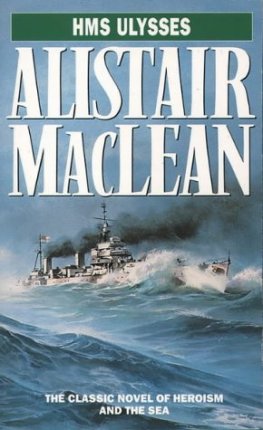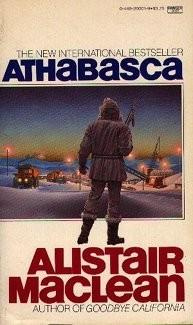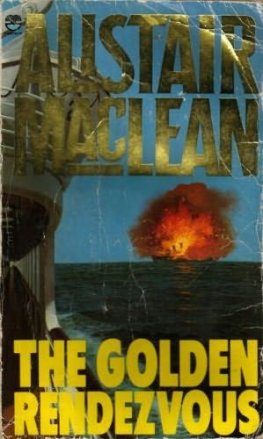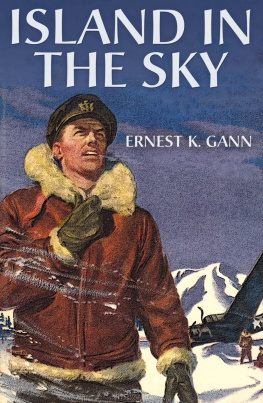Alistair MacLean
Bear Island
To even the least sensitive and perceptive beholder the Morning Rose, at this stage of her long and highly chequered career, must have seemed ill-named, for if ever a vessel could fairly have been said to be approaching, if not actually arrived at, the sunset of her days it was this one. Officially designated an Arctic Steam Trawler, the Morning Rose, 560 gross tons, 173 feet in length, 30 in beam and with a draught, unladen but fully provisioned with fuel and water, of 14.3 feet, had, in fact, been launched from the Jarrow slipways as far back as 1926, the year of the General Strike.
The Morning Rose, then, was far gone beyond the superannuation watershed; she was slow, creaking, unstable, and coming apart at the seams. So were Captain Imrie and Mr. Stokes. The Morning Rose consumed a great deal of fuel in relation to the foot-pounds of energy produced. So did Captain Imrie and Mr. Stokes, malt whisky for Captain Imrie, Jamaican rum for Mr. Stokes. And that was what they were doing now, stoking up on their respective fuels with the steadfast dedication of those who haven't attained septuagenarian status through sheer happenstance.
As far as I could see none of the sparse number of diners at the two long fore and aft tables was stoking up very much on anything. There was a reason for this, of course, the same reason that accounted for the poor attendance at dinner that night. It was not because of the food which, while it wouldn't cause any sleepless nights in the kitchens of the Savoy, was adequate enough, nor was it because of any aesthetic objections our cargo of creative artists might have entertained towards the dining saloon's decor which was, by any standards, quite superb: it was a symphony in teak furniture and wine-coloured carpets and curtains, not, admittedly, what one would look to find on the average trawler but, then, the average trawler, when its fishing days are over-as the Morning Rose's were deemed to be in 1956-doesn't have the good fortune to be re-engined and converted to a luxury yacht by, of all people, a shipping millionaire whose enthusiasm for the sea was matched only by his massive ignorance of all things nautical.
The trouble tonight lay elsewhere, not within the ship but without. Three hundred miles north of the Arctic Circle, where we at the present moment had the debatable fortune to be, the weather conditions can be as beautifully peaceful as any on earth, with mirror-smooth, milky-white seas stretching from horizon to horizon under a canopy of either washed-out blue or stars that are less stars than little chips of frozen fire in a black, black sky. But those days are rare and, usually, to be found only in that brief period that passes for summer in those high latitudes. And whatever summer there had been was long gone. We were deep into late October now, the period of the classical equinoctial gales, and there was a real classical equinoctial beauty blowing up right then. Moxen and Scott, the two stewards, had prudently drawn the dining-saloon curtains so that we couldn't see quite how classical it was.
We didn't have to see it. We could hear it and we could feel it. We could hear the wild threnody of the gale in the rigging, a high-pitched, ululating, atonic sound, as lonely, lost, and eerie as a witch's lament. We could hear, at monotonously regular intervals, the flat explosive clap of sound as the bluff bows of the trawler crashed into the troughs of the steep-sided waves marching steadily eastwards under the goad of that bitter wind born on the immensity of the Greenland icecap, all of seven hundred miles away. We could hear the constantly altering variation in the depth of the engine note as the propellor surged upwards, almost clearing water level, then plunged deep down into the sea again.
And we could feel the storm, a fact that most of those present clearly found a great deal more distressing than just listening to it. One moment, depending upon which side of the fore and aft tables we were sitting, we would be leaning sharply to our left or right as the bows lurched and staggered up the side of a wave: the next, we would be leaning as sharply in the other direction as the stern, in turn, rode high on the crest of the same wave. To compound the steadily increasing level of misery and discomfort the serried ranks of waves beyond the damask drapes were slowly but ominously beginning to break down into confused seas which violently accentuated the Morning Rose's typical fishing boat propensity for rolling continuously in anything short of millpond conditions. The two different motions, lateral and transverse, were now combining to produce an extremely unpleasant corkscrewing effect indeed.
Because I'd spent most of the past eight years at sea, I wasn't experiencing any distressing symptoms myself, but I didn't have to be a doctor -which my paper qualifications declared me to be-to diagnose the symptoms of mal de mer. The wan smile, the gaze studiously averted from anything that resembled food, the air of rapt communication with the inner self, all the signs were there in plenty. A very mirth-provoking subject, seasickness, until one suffers from it one's self: then it ceases to be funny any more. I'd dispensed enough Dramamine to turn them all buttercup yellow but Dramamine is about as effective against an Arctic gale as aspirin is against cholera.
I looked round and wondered who would be the first to go. Antonio, I thought, that tall, willowy, exquisite, rather precious but oddly likeable Roman with the shock of ludicrously blond and curling hair. It is a fact that when a person reaches that nadir of nausea which is the inevitable prelude to violent sickness the complexion does assume a hue which can only be described as greenish: in Antonio's case it was more a tinge of apple-green chartreuse, an odd coloration that I'd never seen before, but I put it down to his naturally sallow complexion. Anyway, no question but that it was the genuine symptom of the genuine illness: another particularly wild lurch and Antonio was on his feet and out of the saloon at a dead run-or as near a dead run as his land-lubber legs could achieve on that swaying deck-without either farewell or apology.
Such is the power of suggestion that within a very few seconds and on the very next lurch three other passengers, two men and a girl, hurriedly rose and left. And such is the power of suggestion compounded that within two minutes more there were, apart from Captain Imrie, Mr. Stokes, and myself, only two others left: Mr. Gerran and Mr. Heissman.
Captain Imrie and Mr. Stokes, seated at the heads of their respective and now virtually deserted tables, observed the hurried departure of the last of the sufferers, looked at each other in mild astonishment, shook their heads and got on with the business of replenishing their fuel reserves. Captain Imrie, a large and splendidly patriarchal figure with piercing blue eyes that weren't much good for seeing with, had a mane of thick white hair that was brushed straight back to his shoulders, and, totally obscuring the dinner tie he affected for dinner wear, an even more impressively flowing beard that would have been the envy of many a biblical prophet: as always, he wore a gold-buttoned, double-breasted jacket with the thick white ring of a commodore of the Royal Navy, to which he wasn't entitled, and, partly concealed by the grandeur of his beard, four rows of medal ribbons, to which he was. Now, still shaking his head, he lifted his bottle of malt Scotch from its container-not until that evening had I understood the purpose of that two-foot-high wrought-iron contraption bolted to the saloon deck by the side of his chair-filled his glass almost to the top and added the negligible amount of water required to make it brimming full. It was at this precise moment that the Morning Rose reared unusually high on the crest of a wave, hovered for what appeared to be an unconscionably long time, then fell both forwards and sideways to plunge with a resounding, shuddering crash into the shoulder of the next sea. Captain Imrie didn't spill a drop: for any indication he gave to the contrary he might have been in the taproom of the Mainbrace in Hull, which was where I'd first met him. He quaffed half the contents of his glass in one puff and reached for his pipe. Captain Imrie had long mastered the art of dining gracefully at sea. Mr. Gerran, clearly, hadn't. He gazed down at his lamb chops, Brussels sprouts, potatoes, and glass of hock which weren't where they ought to have been-they were on his napkin and his napkin was on his lap-with a vexed frown on his face. This was, in its small way, a crisis, and Otto Gerran could hardly be said to be at his ineffectual best when faced with crisis of any kind. But for young Moxen, the steward, this was routine : his own napkin at the ready and bearing a small plastic bucket he'd apparently conjured from nowhere he set about effecting running repairs while Gerran gazed downwards with an expression of perplexed distaste.













